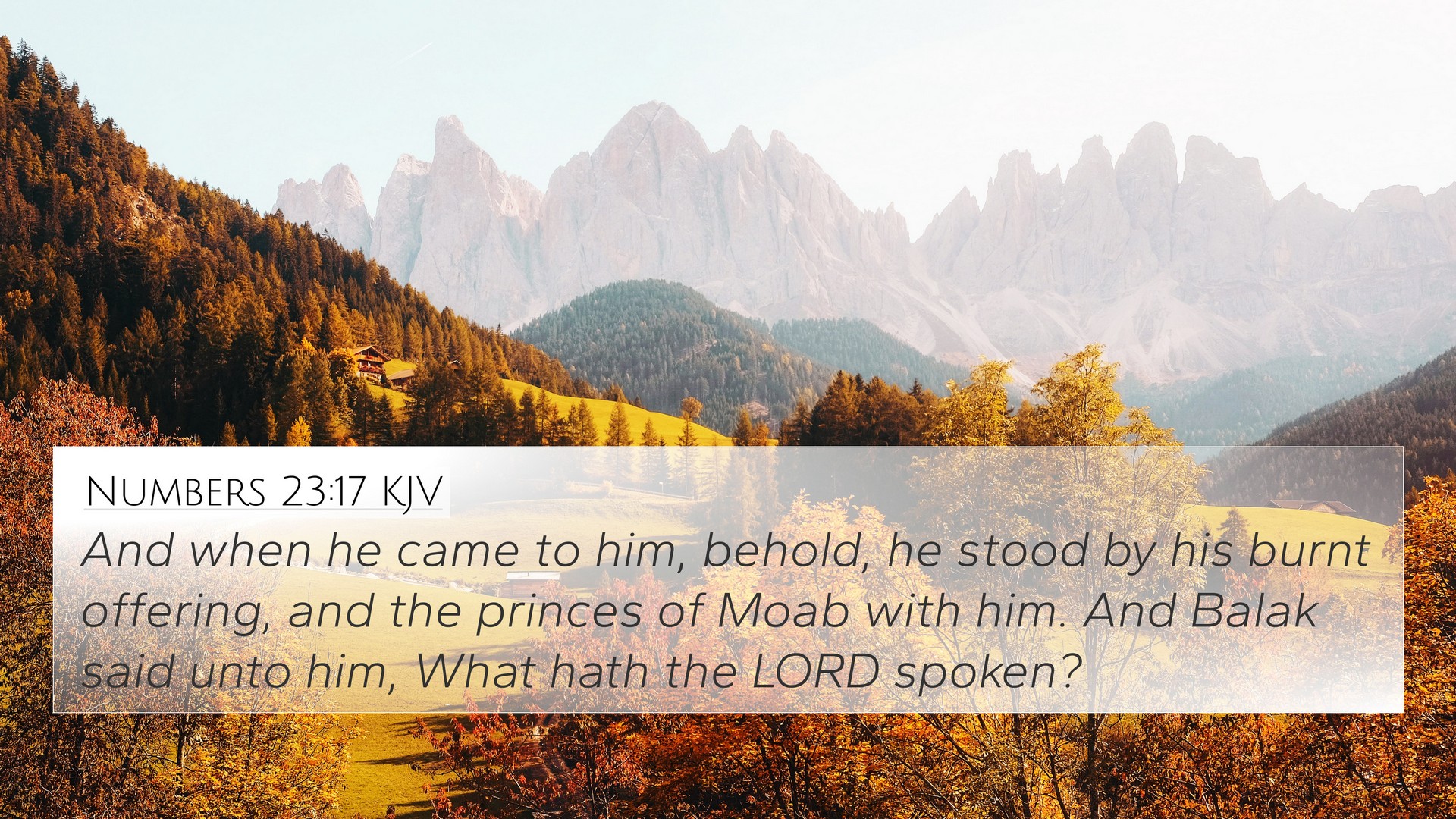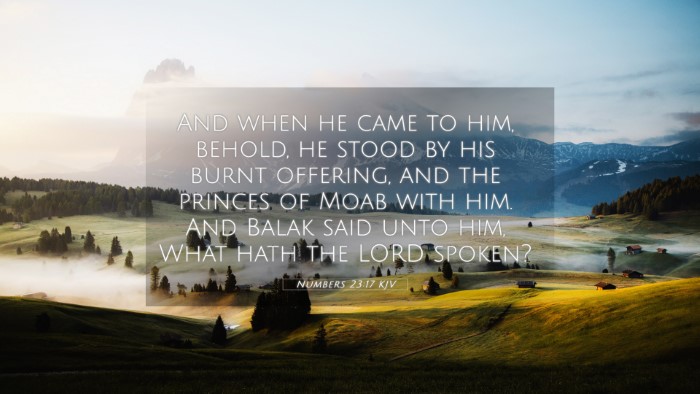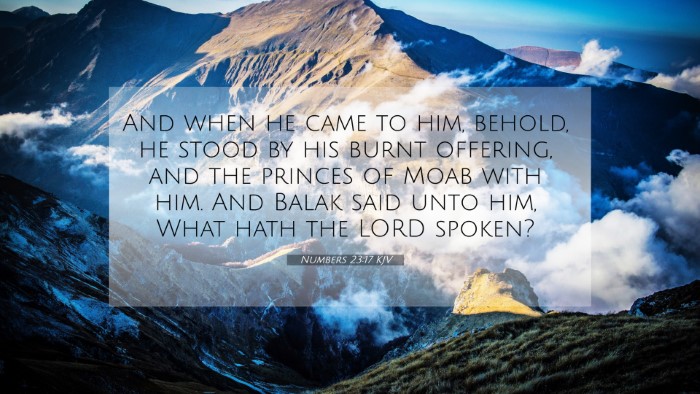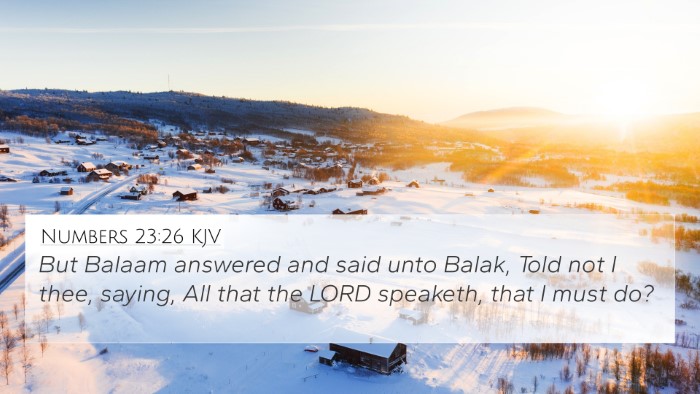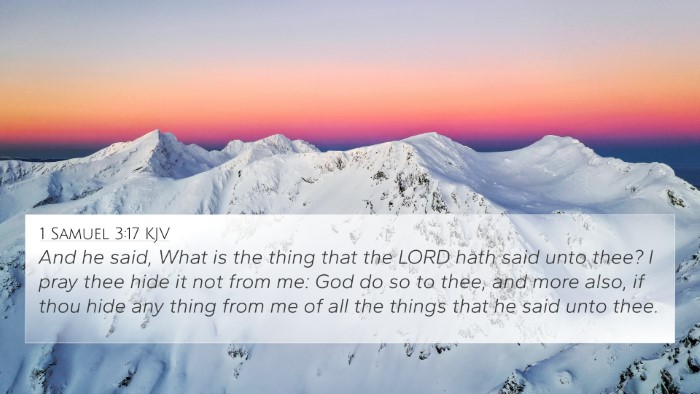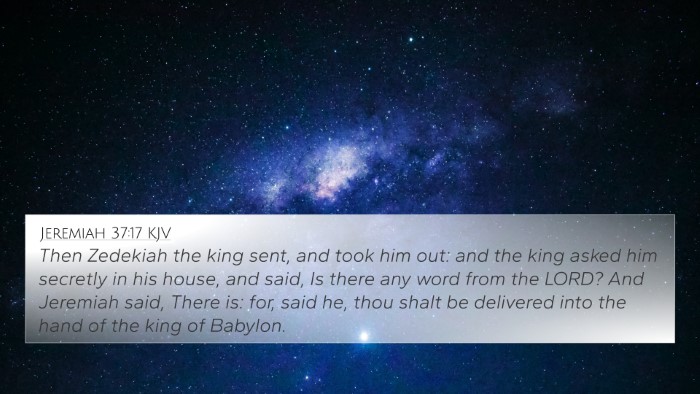Understanding Numbers 23:17
Bible Verse: Numbers 23:17 - "And when he came to him, behold, he stood by his burnt offering, and the princes of Moab with him. And Balak said unto him, What hast thou done unto me? I took thee to curse mine enemies, and, behold, thou hast blessed them altogether."
Summary: Numbers 23:17 presents a moment of tension between Balak and Balaam, highlighting the power of divine blessing versus curses.
Contextual Overview
This verse is critical in understanding the dynamics between Balak, king of Moab, and Balaam, a prophet. Balak sought Balaam's help to curse the Israelites, but instead, Balaam blesses them under God's direction.
Insights from Public Domain Commentaries
-
Matthew Henry Commentary:
Henry notes the contrast between what Balak expected and the outcome. Balak wanted Balaam to curse Israel, but despite his desires, Balaam could only speak what God commanded. This illustrates God's sovereignty and the impotence of human intentions against divine will.
-
Albert Barnes Commentary:
Barnes points out how this moment reflects the theme of divine protection. The inability of Balak to achieve his goal highlights that God’s chosen people cannot be harmed by those who set themselves against them. It emphasizes that blessings from God outweigh human curses.
-
Adam Clarke Commentary:
Clarke emphasizes the peculiar circumstances of Balaam’s prophetic gifts. He notes that God can use even the unwilling or disobedient to fulfill His purposes, which reminds readers of God’s overarching rule in the affairs of humanity.
Related Biblical Themes and Cross-References
Numbers 23:17 connects with various themes throughout the Bible. Here are some related scriptures that provide insight into the interconnectedness of God's commands, curses, and blessings:
- Genesis 12:3: "And I will bless them that bless thee, and curse him that curseth thee..." - This verse establishes the foundation for God's covenant with Abraham, which extends blessings to Abraham's descendants.
- Deuteronomy 28:7: "The LORD shall cause thine enemies that rise up against thee to be smitten before thy face..." - Captures God's promise of protection and blessing over Israel.
- Psalms 105:15: "Saying, Touch not mine anointed, and do my prophets no harm." - Highlights God's protective stance over those He sets apart.
- Romans 8:31: "What shall we then say to these things? If God be for us, who can be against us?" - This New Testament affirmation reflects the continued theme of protection against curses and adversaries.
- Galatians 3:13: "Christ hath redeemed us from the curse of the law, being made a curse for us..." - Relates to how blessings in Christ transcend historical curses.
- Revelation 22:3: "And there shall be no more curse..." - Points toward the ultimate restoration and blessing promised in eternal life.
- Isaiah 54:17: "No weapon that is formed against thee shall prosper..." - Affirms God's promise of protection from adversaries.
Thematic Connections
The interplay of cursing versus blessing is deeply rooted in both the Old and New Testaments, illustrating the consistent narrative of God's protection over His people.
Tools for Cross-Referencing Biblical Texts
Understanding the connections between Bible verses can enhance your study. Here are some tools and methods for deeper exploration:
- Bible Concordance: A useful tool for identifying occurrences of specific words and themes within the Bible.
- Bible Cross-Reference Guides: Helps to find related verses and themes within the scriptures.
- Cross-Reference Bible Study: Involves systematically linking related verses to gain a broader understanding of biblical teachings.
- Bible Reference Resources: Various resources are available, including apps and study guides that facilitate cross-referencing.
- Identifying Connections between Old and New Testament: Helps scholars and learners discover how themes carry through scripture.
Conclusion
Numbers 23:17 serves as a profound reminder of God’s sovereignty and the power of His blessings over human intentions. Delving into this verse, alongside its related Scriptures, opens a pathway to understanding the overarching narrative of God's love, protection, and faithfulness toward His people.
As we engage in cross-referencing Biblical texts, let us appreciate the rich tapestry of connections and themes that the Bible presents, forming a cohesive story of redemption and hope.
